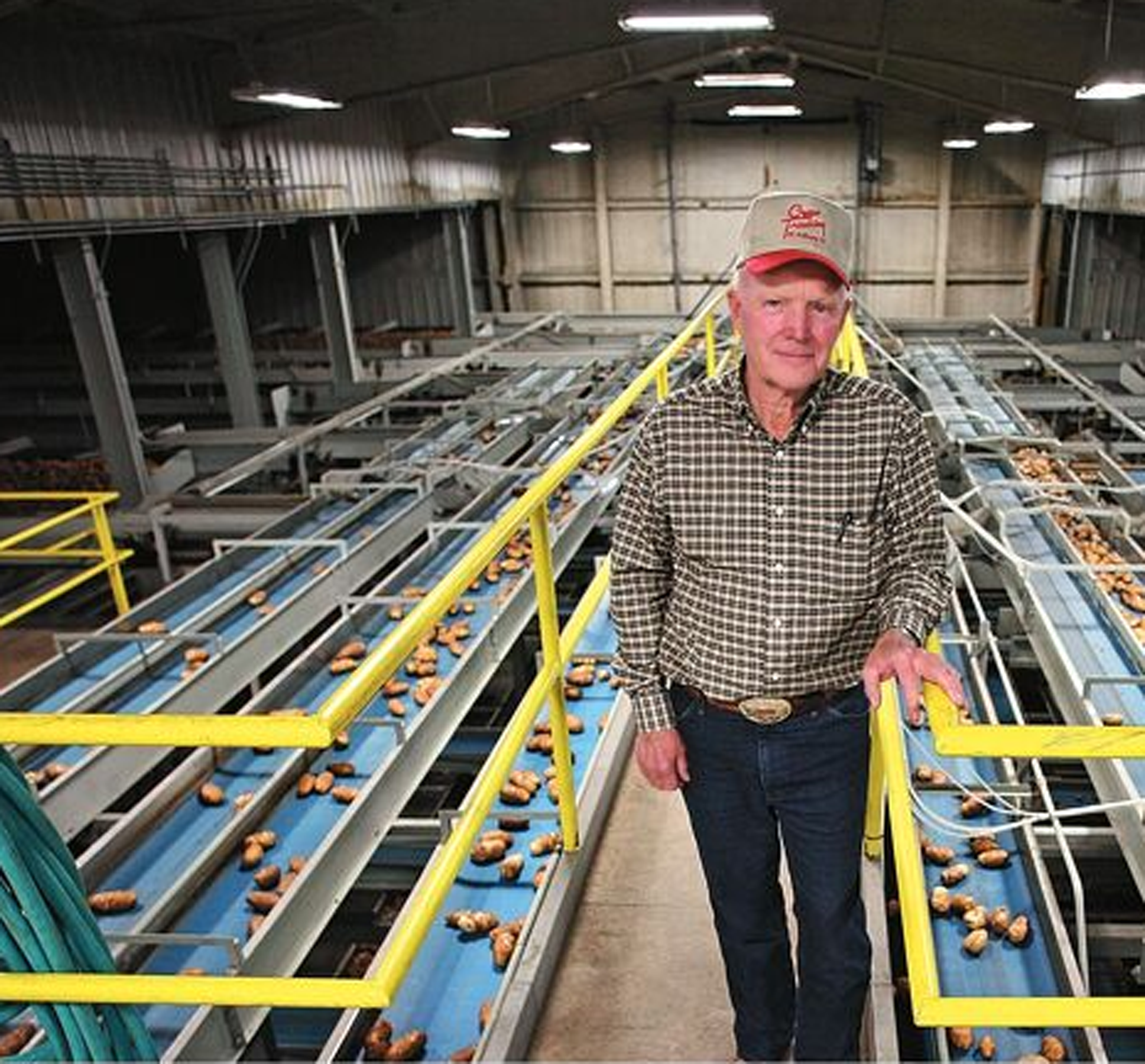George Crapo grew up in Parker, Idaho, where, from a young age, he developed a deep and abiding love of farming and ranching.

Many of the important skills and life lessons he employed throughout his life were learned firsthand working side by side with his father and uncles—men who taught him by example the value of hard work, honesty, and working together as a family.
Shortly after marrying his high school sweetheart, Linda, in 1959, and settling back down in Parker, Crapo bought a single-axle bobtail truck and began hauling potatoes for local farmers. In 1968, the purchase of a ten-wheeler marked the official start of Crapo Trucking. Sun-Glo of Idaho, a fresh-pack warehouse in nearby Sugar City, became a regular customer, and that relationship eventually led to Crapo becoming a Sun-Glo owner.
Around that time, Crapo’s father and uncles offered him the opportunity to farm an 80-acre piece near Parker. He later partnered with his father and four brothers in additional farming and cattle ventures. With the help of his brothers and sons, he was able to enlarge the farming and trucking operations to include a number of farms in southeastern Idaho and Montana.
Well-known for his perpetually positive and often visionary personality, Crapo was acclaimed for being forward-thinking, innovative and, in many instances, daring in his farming and business ventures. He was a big believer in the value of being active in the agricultural community and held leadership positions with the local irrigation district and canal board, the Soil Conservation Service Committee, the U.S. Potato Board, and Farm Credit Services, among others. In 1998, he was inducted into the Eastern Idaho Agriculture Hall of Fame; in 2010 he was honored as the Idaho Grower Shippers Association’s Russet Aristocrat.
In business as well as in his personal life, Crapo placed a high value on relationships, which was perhaps the biggest driver of his success. His passion for agriculture was on full display throughout his life, but he always maintained that his work was “more about raising children than raising crops.” When he passed away in September 2021, George Crapo left behind an enduring legacy of integrity, faith and family, not only for his children, grandchildren and great-grandchildren, but for those who had the good fortune to know and work with him in the industry he loved.

- George always had a great respect for those who paved the way for him to progress in his agriculture and trucking operations. Throughout his life he was known to be innovative, forward-thinking and courageous in his farming and business ventures. Some of his greatest talents were his positive attitude and vision.
- He believed in being active in issues related to agriculture. He served as director of the Fremont Madison Irrigation District, director of the St. Anthony Canal, on the Soil Conservation Service Committee, National Potato Board, and as local director of Farm Credit Services for more than 21 years. He received many awards from various organizations and was especially pleased to be inducted into the Eastern Idaho Agriculture Hall of Fame in 1998. In 2010, he was given the Potato Grower Shippers “Russet Aristocrat” which is awarded to one person each year.
- George was a skilled operator of all kinds of equipment. He could often be found doing a project with the backhoe. He always owned a GMC pickup. When people asked why, he explained that no other pickup truck had his initials on it. He loved horse power and often surprised people when he pulled up in his red Corvette. He and Linda enjoyed dancing and riding their Harley Davidson motorcycle.
- Among his family, friends and employees George was known as “Taters” and “Unit 1”. He had an infectious sense of humor that was oftentimes exhibited in his entertaining storytelling. George valued relationships and spent a significant portion of his life building connections with people. He especially respected his employees and always credited any success to the efforts of the men and women who worked for him.
- Raising potatoes was important to George but his real purpose in doing what he did, was because of his love for his family. It was always more about raising children than raising crops. George had a deep love for his family. He was so soft hearted in his later years that he could not speak of his family without tears coming to his eyes.







